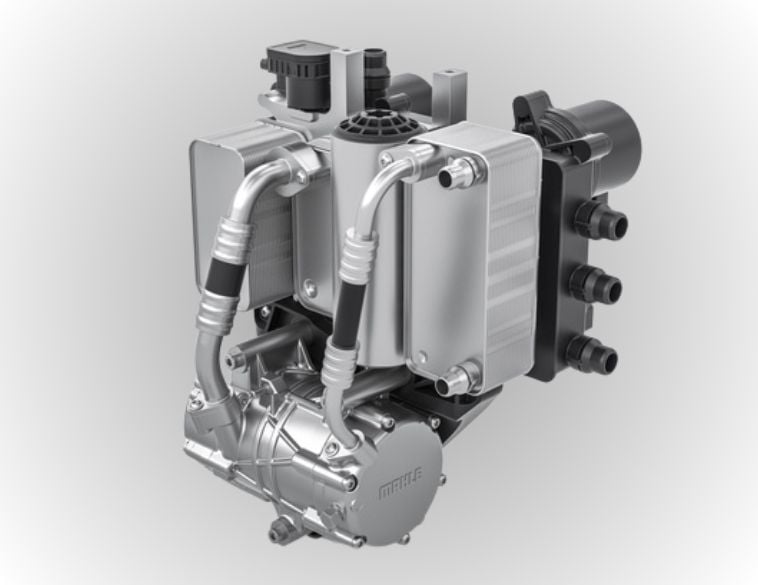“Structure and effective mentoring are essential to grooming the next generation of automotive service technicians, ” says Devin Purcell.
Devin Purcell grew up around the automotive service industry and became a Red Seal Certified technician, garnering 20 years of experience in the business.
Today he serves as Professor at the School of Transportation, Technology and Apprenticeship, Fanshawe College, London, Ont.
Purcell strongly believes in the role apprenticeships play and the need for our industry to develop a solid mentorship program that supports those young people who want to pursue a career within it.
With the right focus and determination, Purcell believes we can ensure a healthy stream of promising young technicians to keep the independent automotive repair sector vibrant and viable well into the future.
Recently, Autosphere interviewed Purcell, asking him to share his thoughts on the subject. Here is what he had to say:
Career path
Autosphere: What made you decide to become an automotive technician?
Devin Purcell: My father was a small engine technician.
He was always tinkering out in the shop and rebuilding cars, etc. so being a technician is our family’s stock in trade.
It does seem that almost every person in our family is either an automotive technician or works in a related profession within the automotive industry—so you could say it runs in my blood.
My career start began in Grade 10 in high school auto shop class and over time, I got involved in the automotive apprenticeship program.
Although the apprenticeship program was a little different than what we have today, it was an excellent experience and really gave me a jump start when it came to starting those apprenticeship hours while I was still in high school.
After high school, I started working at a local GM dealership where I completed my apprenticeship.
Red Seal technician
Can you share with us some of your experiences on your journey from apprentice to Red Seal technician?
DP: I think my own experiences are fairly typical. I started out sweeping floors and emptying garbage, as well as changing tires.
I was very fortunate to work with a lot of great people even though at that time, I wasn’t doing a lot of hands-on repairs.
I was however able to learn from experienced technicians and seek out the information I wanted to learn on my own through automotive textbooks, courses and trade publications.
Instructor at Fanshawe College
What made you decide to become an instructor at Fanshawe College?
DP: Becoming a professor and instructor was also the next logical step and has given me the drive to want to learn more.
Part of this motivation is also to pass on what I’m learning to my students.
We’re in an industry today that changes on an almost daily basis and with electric vehicles and autonomous technology being developed we really need to be on our toes.
I want to be able to pass on everything that those technicians originally taught me to the next generation.
By doing that we, as technicians and instructors can hopefully give them the ability to teach themselves and continue to learn and update their training, so they remain at the cutting edge of the industry.
Supporting young apprentices
One challenge we often come across is that many young people leave apprenticeships because they are discouraged. What steps do you think our industry must take to ensure we keep more young, talented people and show them the benefits and rewards of this amazing industry?
DP: That’s a great question and when we look at it, the changes that have been made to apprenticeships have been very limited.
I think one of the biggest changes that we need to make today, is in how we find technicians.
We need to be able to find willing and/or skilled apprentices and properly train them to become skilled technicians.
A lot of apprentices today are becoming disappointed or disheartened and are perhaps not willing to fight through the endless monotony of cleaning the shop and performing oil changes.
They want to be involved and partake in actual repairs. In order to do that, I believe that we need more pronounced mentorship and it needs to continue industry-wide.
Attracting young technicians
How do you think our industry can ensure a steady supply of young technicians both today and into the future?
DP: I personally hear of a lot of different experiences among apprentices, as they progress, as well as the variety of exposure they have to automotive repairs.
In some cases, we see apprentices performing engine overhauls and rebuilds, while others are still restricted to performing oil changes after 2-3 years in the industry.
For those students that aren’t doing what they thought they would be, it can be very disheartening, and our industry loses a good number of them who otherwise would be a sizeable part of the future stream of automotive service technicians.
Therefore, I think it is important that we look at the apprenticeship process and understand that it can be changed and improved upon.
If we can do that, then I think it will be key to ensuring we have a steady supply of technicians both now and into the future, because ultimately our industry depends on it.
Importance of mentorship
What are your views on mentorship in the trade and some of the most effective ways that young technicians can grow and in turn share their own experiences with the next generation?
DP: We do need to get some sort of formalized mentorship in place.
I have seen in a lot of cases where apprentices work in a service repair facility that has little to nothing in the way of a mentorship program.
Often, they have signed up as an apprentice and they have a journeyman technician assigned to work with them to make sure the job is done correctly.
When it comes to a problem or issue they can’t figure out, however; the apprentice often doesn’t have somebody to lean on to help them get through it.
In teaching, I always try to relate my own personal experiences to my students so they can understand that there is light at the end of the tunnel.
I think it’s important for apprentices to understand that they won’t always be performing menial tasks and there will be a day when they are the senior technician performing advanced diagnostics or electrical repairs.
From a mentorship standpoint, I think it’s important for senior technicians to remember what it was like being an apprentice and take some time to explain how things work, such as a wiring schematic or performing a little diagnostic work using a multimeter.
We have to remember that these apprentices aren’t just there to look after all the menial tasks in our shop.
They’re primarily there to learn the trade—to learn everything that we know and that’s where the mentorship really comes in.
Continuous education
Do you see mentorship as an ongoing process, even once it’s established within the shop environment?
DP: Absolutely.
It’s important that you pair an apprentice with a great senior technician, and train them to a point where they become the senior technician and mentor those following them.
This allows them to pass on their knowledge and experience because they have gone through the process themselves.
They’ll know the ins and outs of how things work and will likely continue on with that process.
Structuring a program
What do you think are some of the best ways to structure a mentorship program?
DP: It depends on a number of factors, including the scope of repairs and the size of the facility.
Maybe you can identify two or three senior technicians who are able to partake in a mentorship program with your apprentices, particularly if the shop has 3-4 apprentices at any one time.
If you only have one mentor, they can quickly become frazzled due to the workload in trying to deal with all these apprentices.
That’s why it’s important to identify how many mentors the shop has and be able to utilize their skills effectively by mentoring these students and guiding them through the process so they can successfully complete their apprenticeships.
Final thoughts
Any final thoughts regarding the subject of apprenticeships and technician training?
DP: I love apprenticeships and believe the apprenticeship program that we have now is amazing.
Being a product of the apprenticeship program myself and also partaking on the other side as an instructor has demonstrated to me that the process does work very well.
I am surprised that we don’t have more emphasis on apprentices in our industry or that we are really taking steps to improve on what we have to make them even better.
When we see students get discouraged and leave, we have to understand that it is not because we have a flawed apprenticeship program, it’s just that in many cases we’ve become complacent and haven’t followed through.
In order to attract new technicians into our industry, we need to think about how we can make the process better and more streamlined as well as attracting young people with technology skills.
It does seem that a lot of young people want to get into the computer science or IT industries today, but perhaps they aren’t aware of how advanced modern vehicles are.
The fact is, that cars and trucks are becoming ever more complicated and we need those students in our apprenticeship stream.
If we are able to better promote the opportunities in our industry and improve the apprenticeship process, I think that goes a long way to getting those students we need into our repair facilities.


